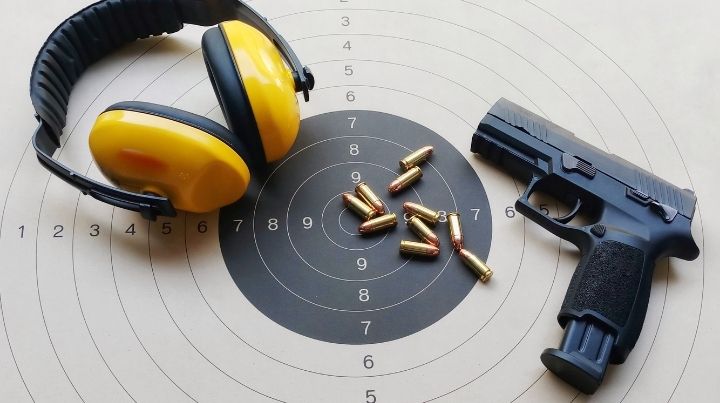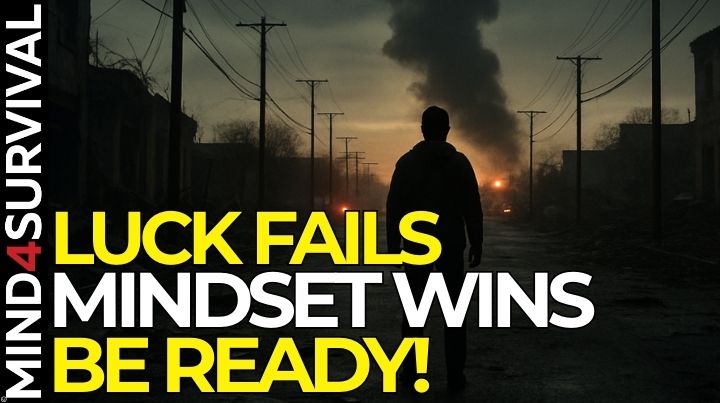M4S 011: Civilian Firearms Training and Mastering the Basics


Podcast: Play in new window | Download
The most important thing you can do when you decide to purchase a gun is to get the proper civilian firearms training. Just “having a gun” is not enough. Training from a proficient instructor will ensure you handle your weapon safely and accurately.
Here are some of the concepts that an instructor should cover in civilian firearms training.
Master the Basics
The number one fundamental of firearms training is to master the basics.
While this article speaks specifically to civilian firearms training, many of these fundamentals apply across the entire spectrum of preparedness training. So take these tools, make them your own, and use them to improve your competence in all the skills you set out to learn.
How to Get Started with Civilian Firearms Training
One of the most challenging steps to starting training is going out and doing it.
Research the Instructor, Course, and School
Use any search engines, forums, blogs, etc., to do your initial search for an instructor, course, school, etc. Search for a reputable school with high ratings. Then do some digging to learn more.
Research the background of whatever school you are going to or the instructor you are taking the course from.
Identify and compare the:
- Background
- Skill level
- Does he/she compete
- Years in business
- Years teaching
- Online reviews and testimonials
Instructor’s backgrounds are based upon the totality of their background and experience. So, when researching instructors, make sure you take that into account. Here are some more tips on assessing a firearms instructor.
The very best way to find an instructor is through word of mouth. Find out who your friends have used and how they liked their instructor. One reader shared that she went to a remote outdoor at her first firearms class, and the instructor threatened to shoot her if she “swept” the area with her newly acquired gun. Needless to say, she was too nervous to learn much during that course. Fortunately, she didn't give up and found another instructor that came highly recommended.
You may be a little nervous attending your first course, and that's perfectly natural. But if the instructor himself or herself makes you uncomfortable, like in the story described above, leave. Don't worry about being rude. Trust your instincts.
Focus on the Basics
Focus on the basics of whatever you are doing. Focusing on the basics isn’t sexy, but it is essential. Embrace the boring, repetitive stuff, and in a short amount of time, your skill level could drastically improve.
Don’t outpace your mindset and ability. Be realistic in your personal views and overall expectations. Even if you are experienced, you can always find something to help yourself improve.
Self-Evaluation
Perform an honest self-evaluation on yourself and your ability. Don’t be overconfident in your skills. Be realistic with yourself and your capabilities. Once you have an accurate view of your abilities, train to that and improve from there.
Standards
Training to accepted standards provides you with both a goal and a benchmark to measure yourself and your progress.
Research accepted standards for whatever skill it is that you are trying to master. Once you have the standards, work to meet and then exceed them.
When working on your shooting skills, some accepted standards are Hackathorn, Vickers, and International Defense Pistol Association (IDPA).
Common Training Mistakes
Don’t wait to start training. The sooner you start, the sooner you’ll improve. Understand your ability and skill level. Train to provide a realistic challenge appropriate to that level.
Resist the urge to go too fast. I'll repeat it: learn the basics. The basics are the foundation to all the more difficult skills you’ll use later. Learn them now so that you can progress faster
Dry Fire Drills
For shooting, conduct regular dry-fire. It will make a world of difference in your ability down the road.
The more repetitions, the better.
Steve Anderson’s book on dry-firing, Refinement and Repetition: Dry-Firing Drills for Dramatic Improvement is an excellent resource for dry-firing! You can also find some dry fire drills here.
Use a shooting Pro Timer to increase your training intensity and challenge your speed and ability. A pro timer will also help you keep track of your progress.
Consider Competition Training
Competition helps drive you to improve. Competing against others is fun, adds stress, increases motivation, and allows you to see how you stack up to others.
You don’t need to be a ninja to be good at something. Setting goals, being focused, and disciplined will help make you as good, if not better, than the supposed ninjas.
Free Training!
Participating in competitions will help improve your skills.
When competing, other competitors will help teach and train you for free. They will provide pointers, instant feedback, and a support network.
Don’t Focus on Stuff
Good gear does not make you good. Being good makes you good. Focus less on equipment and more on skill and training. Doing so will make you a competent marksman.
Therefore, most people don’t outpace the basic gear and therefore don’t need to spend money on advanced gear.
Concealed Carry Insurance
Consider concealed carry insurance to protect your freedom and property. Even though you may be personally justified in your actions, you could lose in criminal and civil court.
Consider purchasing concealed carry insurance:
The Bottom Line on Civilian Firearms Training
The key to civilian firearms training is the trainer. Your choice of trainer can start you off with good, safe habits or with habits that have to be trained out of you later. Secondly, practice and repetition of the basics are essential. It may not be sexy or exciting, but it creates the muscle memory you need to effectively, accurately, and safely use your firearm when you need it the most.
Stay safe, secure, and prepared,

Related Articles
FREE Guide
Read the Best Seller
Join Mind4Survival
Stay informed by joining the Mind4Survival! 100% Secure! 0% Spam!
Affiliate Disclosure...
Mind4Survival is a free, reader supported information resource. If you make a purchase through our link, we may, at no cost to your, receive an affiliate commission.
Do You Want To Be Ready No Matter What?

Download our free 39-page guide with interactive, 7-Day Emergency Kit Checklist and take the first step toward real preparedness.
- Know exactly where to start.
- Save time and money.
- How-to build a complete Basic Emergency Kit.
- Level up your safety and security.
Join Mind4Survival
Stay informed by joining the Mind4Survival! 100% Secure! 0% Spam!






Hi Brian —
Excellent post! It’s all about the basics in everything. Good stuff and you are getting lots of attention on Socnet.
Thanks for the great feedback! Glad you enjoyed it.
Brian,
Thanks for having me on the show. I enjoyed the show and the opportunity. Thanks for sharing!
Take care,
Mike
http://www.Green-Ops.com
Thanks for coming on the podcast Mike! You’re a great guest and it’s a great episode. Your site, http://www.green-ops.com is a great resource.